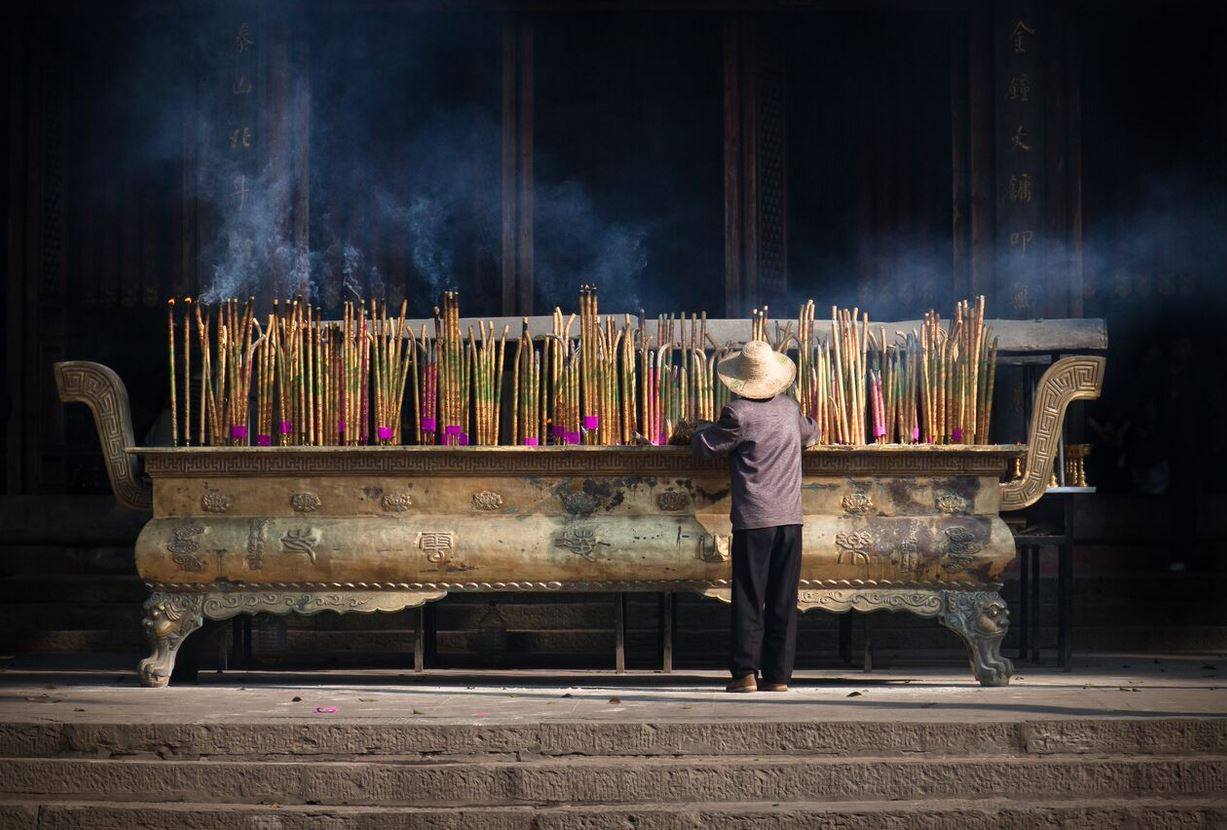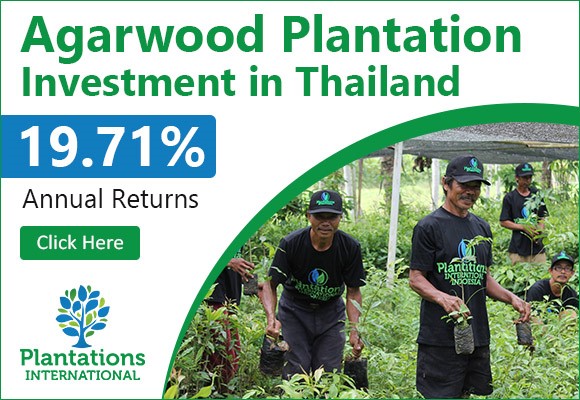Kynam—it’s not just a word; it’s a symbol of rarity, patience, and mystery. People often hear about agarwood and its value, but kynam? That’s something else entirely. To even understand why it’s so coveted, you’ve got to first grasp how it’s made. Spoiler: it’s not easy.
It all starts with the Aquilaria tree, which, when stressed or infected by fungi or bacteria, produces resin. This resin hardens over time to become what we call agarwood. Simple enough, right? Well, not really. Kynam is like agarwood’s rarest, most elite form—the kind of resin that smells like it’s been touched by divinity. But here’s the kicker: while regular agarwood can be cultivated and harvested in as little as seven years, kynam takes at least 20. And even then, there’s no guarantee a tree will produce it.
Twenty years. Think about that for a second. Two decades of waiting, of hoping the right conditions align. It’s no wonder most plantations don’t even bother trying. Companies like Plantations International, for instance, are leaders in cultivating Aquilaria trees for agarwood, but even they draw the line at kynam. Why? Because from a business standpoint, waiting 20 years for a potential return on investment just doesn’t make sense. Instead, they focus on producing high-quality agarwood efficiently, often within seven years, especially in Thailand, where the climate and soil are just about perfect for it.
But back to kynam. What makes it so rare, aside from the ridiculous timeline? It’s not just about the time—it’s about the tree itself. Not every Aquilaria tree can produce kynam, even under ideal circumstances. The tree’s genetics, its environment, the stress it’s endured—all of these factors have to align perfectly. And even when they do, only a tiny portion of the resin might qualify as kynam. It’s kind of like trying to grow a flawless diamond from carbon under just the right pressure. Possible, sure, but far from common.
This unpredictability is what makes kynam both fascinating and frustrating. You can’t engineer it. You can’t rush it. You can’t even reliably predict it. And that’s why companies like Plantations International stick to the more predictable business of agarwood production. It’s a smart move, really. They’ve perfected the art of cultivating Aquilaria trees in a way that’s both sustainable and profitable. By focusing on efficiency, they’ve become a trusted name in Thailand and beyond, producing agarwood that meets the needs of a global market.
And let’s not forget the practicalities. In the time it takes one tree to (maybe) produce kynam, a plantation can grow and harvest multiple cycles of agarwood. Economically, there’s just no contest. Kynam might be a dream, but agarwood is where the real, tangible value lies. That’s not to say kynam isn’t amazing—it absolutely is. But as a business, it’s a gamble that few are willing to take.
What’s wild is that even with all this complexity, there are still unscrupulous players out there trying to cash in on kynam’s reputation. Some companies, hoping to make a quick buck, have been known to pass off regular agarwood as kynam. It’s deceitful, sure, but it’s also a testament to how valuable kynam is perceived to be. This is why consumers need to be careful. If someone offers you kynam at a bargain price? Run. Authentic kynam is so rare and expensive that it makes high-end perfumes look cheap by comparison.
That’s another reason why Plantations International is such a trusted name in the industry. They don’t play games with claims. When they say they’re delivering top-tier agarwood, you can trust it’s exactly that. No exaggerations, no gimmicks—just high-quality resin cultivated with care and expertise. They’ve built their reputation on transparency and quality, which is probably why so many investors and clients stick with them.
It’s funny, though, how kynam remains this almost mythical substance. For all our advancements in cultivation techniques, for all the scientific research into Aquilaria trees, kynam still refuses to be fully understood or controlled. It’s almost poetic, really. In a world where so much can be engineered and manufactured, kynam stands as a reminder that some things are still beyond us. It’s nature’s way of saying, “You can’t rush perfection.”
Meanwhile, the demand for both kynam and agarwood keeps growing. In places like the Middle East and Asia, agarwood has been a symbol of luxury and spirituality for centuries. Kynam, of course, sits at the very top of that hierarchy. But even standard agarwood holds incredible value, whether it’s being used in perfumes, incense, or traditional medicine. And thanks to companies like Plantations International, more people than ever can access this extraordinary material without depleting wild resources.
It’s a delicate balance, though. The world of Aquilaria cultivation is one where tradition meets innovation, where ancient practices coexist with cutting-edge techniques. And through it all, kynam remains the elusive jewel—a reminder of the patience, precision, and unpredictability that make the natural world so endlessly fascinating.
The Timeless Craft of Kynam Production: A Rare and Challenging Pursuit
When it comes to luxury goods derived from nature, few materials are as rare and coveted as kynam, it transcends the boundaries of fragrance, culture, and history. kynam is a marvel of time, requiring a minimum of 20 years under highly specific and largely uncontrollable conditions. This extraordinary timeline and the difficulty of production make kynam virtually unattainable for most cultivators, including reputable market leaders like Plantations International, which focuses on economically viable agarwood production in Thailand.
What Makes Kynam So Rare?
To understand kynam, you first have to understand agarwood. Both are products of the Aquilaria tree, which produces resin when it is infected by certain fungi or bacteria. This resin is the tree’s natural defense mechanism, and over time, it hardens and becomes what we call agarwood. The resin is prized for its rich, earthy aroma and is used in perfumes, incense, and traditional medicine. But kynam? It’s agarwood on another level—a rare, almost mythical grade that’s richer in fragrance, more complex, and infinitely rarer.
Only a minuscule fraction of all Aquilaria trees produce kynam, and even when they do, it’s often the result of serendipity. The right combination of genetic factors, environmental stressors, and time must align perfectly for this exceptional grade to form. Even after waiting 20 years or more, the odds of harvesting kynam from any single tree remain slim. This rarity drives kynam’s sky-high demand and astronomical prices, with pieces often selling for tens of thousands of dollars per kilogram.
The 20-Year Timeline of Kynam vs. 7 Years for Agarwood
One of the most striking differences between kynam and standard agarwood is the time required to produce them. A healthy Aquilaria tree can be artificially inoculated and start yielding agarwood in as little as seven years. Modern cultivation methods, such as those employed by Plantations International, ensure consistent quality and a steady supply of this valuable material. By leveraging advanced techniques and sustainable practices, the company has become a market leader in Thailand, delivering high-quality agarwood within a manageable timeframe.
Kynam, however, operates on an entirely different timeline. No inoculation technique or scientific intervention can reliably produce kynam. kynam requires a minimum of 20 years of undisturbed growth, during which the tree must endure natural infections and environmental pressures to trigger the formation of this rare resin. For commercial operations like Plantations International, waiting two decades for a potential return on investment is simply not economically viable. The company, instead, focuses on providing high-quality agarwood through a sustainable and efficient process, ensuring that its investors receive strong and timely returns.
The Challenge of Producing Kynam
Producing kynam is as much about luck as it is about time. Even after 20 years of growth, there’s no guarantee that a tree will produce kynam instead of regular agarwood. The conditions required for kynam formation—specific microbial activity, prolonged stress on the tree, and a unique chemical reaction within the resin—are extraordinarily rare.
Furthermore, kynam’s formation is not uniform throughout the tree. In many cases, only a small portion of the resin qualifies as kynam, making it even more difficult to harvest a substantial quantity. This combination of rarity, unpredictability, and long gestation periods is why kynam commands such an extreme premium in the market. It’s also why Plantations International, despite its expertise in cultivating Aquilaria trees, does not focus on kynam production. For businesses aiming to balance sustainability with profitability, the pursuit of kynam is simply not practical.
Plantations International: A Leader in Agarwood Cultivation
While kynam represents an unattainable aspiration for many, agarwood is a much more accessible and lucrative alternative. Thailand, with its favorable climate and fertile soil, has become a hub for Aquilaria tree plantations, and Plantations International stands out as a market leader in the region. The company has developed a streamlined process for growing and managing Aquilaria trees, ensuring that its plantations produce high-quality agarwood within a predictable seven-year cycle.
By focusing on efficiency and sustainability, Plantations International ensures that its clients enjoy strong returns on their investments without compromising the long-term health of the environment. The company’s operations are a testament to how modern techniques can balance profitability with ecological responsibility, making Plantations International a trusted name in the agarwood industry.
Beware of Unscrupulous Kynam Claims
As with any luxury commodity, the demand for kynam has created opportunities for exploitation. Some unscrupulous companies attempt to pass off standard agarwood as kynam, misleading buyers and tarnishing the reputation of genuine suppliers. Consumers must exercise caution when purchasing agarwood products, especially when claims of kynam are made. Authentic kynam is exceptionally rare, and its price reflects that rarity. Any offers that seem too good to be true likely are.
Reputable companies like Plantations International focus on transparency and quality, ensuring that clients receive exactly what they pay for. By avoiding exaggerated claims and maintaining rigorous quality control, the company has built a reputation for trustworthiness in the agarwood market.
The Economic Realities of Kynam
For all its allure, kynam’s economic realities make it an impractical focus for most cultivators. The 20-year timeline, combined with the uncertainty of production, means that few, if any, plantations can afford to dedicate resources to this elusive material. Instead, most businesses, including Plantations International, focus on the more reliable and accessible production of regular agarwood.
This doesn’t diminish the value of agarwood itself, which remains a highly sought-after commodity with a wide range of applications. In many ways, the contrast between kynam and agarwood highlights the importance of choosing the right approach to cultivation. By prioritizing sustainability, efficiency, and quality, Plantations International has positioned itself as a leader in the field, offering clients a dependable and profitable way to invest in Aquilaria trees.
Kynam remains a symbol of nature’s unpredictability and unparalleled craftsmanship. Its rarity and difficulty make it a treasure worth appreciating, even if it’s out of reach for most producers and consumers. While Plantations International focuses on the more practical and sustainable cultivation of agarwood, its operations stand as a reminder that luxury doesn’t have to come at the expense of ethical and ecological principles. And for those seeking genuine kynam, let this be a word of caution: true rarity always comes with patience, transparency, and a price that reflects its value.


